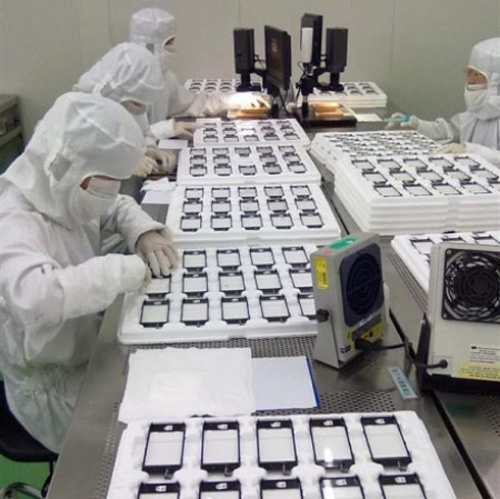 5604
5604
 2017-01-09
2017-01-09
ZHENGZHOU, China — A vast, boxy customs center acts as a busy island of commerce deep in central China.
Government officers, in sharply pressed uniforms, race around a maze of wooden pallets piled high with boxes — counting, weighing, scanning and approving shipments. Unmarked trucks stretch for more than a mile awaiting the next load headed for Beijing, New York, London and dozens of other destinations.
The state-of-the-art facility was built several years ago to serve a single global exporter: Apple, now the world’s most valuable company and one of China’s largest retailers.
The well-choreographed customs routine is part of a hidden bounty of perks, tax breaks and subsidies in China that supports the world’s biggest iPhone factory, according to confidential government records reviewed by The New York Times, as well as more than 100 interviews with factory workers, logistics handlers, truck drivers, tax specialists and current and former Apple executives. The package of sweeteners and incentives, worth billions of dollars, is central to the production of the iPhone, Apple’s best-selling and most profitable product.

It all centers on Zhengzhou, a city of six million people in an impoverished region of China. Running at full tilt, the factory here, owned and operated by Apple’s manufacturing partner Foxconn, can produce 500,000 iPhones a day. Locals now refer to Zhengzhou as “iPhone City.”
The local government has proved instrumental, doling out more than $1.5 billion to Foxconn to build large sections of the factory and nearby employee housing. It paved roads and built power plants.
It helps cover continuing energy and transportation costs for the operation. It recruits workers for the assembly line. It pays bonuses to the factory for meeting export targets.
The two companies are intertwined in Zhengzhou. When the factory opened, Apple was Foxconn’s only customer here. Even now, the American technology company accounts for almost all of the production at the Zhengzhou plant, where about half of the world’s iPhones are made. Apple is also the main exporter using the customs facility here.
In response to questions, Apple said it was aware of the government’s infrastructure support. But the company added that it had no knowledge of specific grants, subsidies or tax breaks given to its manufacturing partner.
Foxconn, in a separate statement, said it was grateful for the support of the government, noting that it was “no different than similar tax breaks all companies get in locations around the world for major investments.”
Source: nytimes